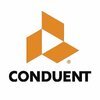Filter interviews by
Greet Technologies Interview Questions, Process, and Tips for Freshers
Greet Technologies Interview Experiences for Freshers
6 interviews found
I applied via Approached by Company and was interviewed in May 2024. There were 3 interview rounds.
(7 Questions)
- Q1. Tell me about yourself
- Q2. Do you know the job role?
- Q3. What were the golden rules of accounting
- Ans.
The golden rules of accounting are basic principles that guide the process of recording financial transactions.
The three golden rules of accounting are: Debit the receiver, Credit the giver; Debit what comes in, Credit what goes out; Debit all expenses and losses, Credit all incomes and gains.
These rules help ensure that financial transactions are accurately recorded and classified in the accounting system.
For example,...
- Q4. What is depreciation
- Ans.
Depreciation is the allocation of the cost of a tangible asset over its useful life.
Depreciation is a non-cash expense that reduces the value of an asset over time.
It reflects the wear and tear, obsolescence, or decrease in value of the asset.
Common methods of calculating depreciation include straight-line, double declining balance, and units of production.
Example: A company buys a delivery truck for $50,000 with a use...
- Q5. What do you know about GST
- Ans.
GST stands for Goods and Services Tax, a value-added tax levied on most goods and services sold for domestic consumption.
GST is a single tax on the supply of goods and services, right from the manufacturer to the consumer.
It has replaced multiple indirect taxes like VAT, service tax, etc.
GST has 4 tax slabs - 5%, 12%, 18%, and 28%.
Input tax credit can be claimed on taxes paid on input goods and services.
GST registratio...
- Q6. What are the types of GST
- Ans.
Types of GST include CGST, SGST, IGST, and UTGST.
CGST - Central Goods and Services Tax
SGST - State Goods and Services Tax
IGST - Integrated Goods and Services Tax
UTGST - Union Territory Goods and Services Tax
- Q7. Tell me about any topic in hindi
(5 Questions)
- Q1. Tell me about yourself
- Q2. Where do you live in Bangalore
- Q3. Do you know about Tally,GST and TDS
- Ans.
Yes, I am familiar with Tally for accounting, GST for taxation, and TDS for tax deduction.
I have experience using Tally software for maintaining accounting records.
I understand the concepts of GST (Goods and Services Tax) and its implications on business transactions.
I am aware of TDS (Tax Deducted at Source) and its requirements for tax deduction.
I have practical knowledge of how to handle GST and TDS compliance in ac
- Q4. Do you know that the job role is a voice process one?
- Q5. Do you know the salary package here?
(2 Questions)
- Q1. Tell me about any topic in hindi
- Q2. Do you know that hindi is mandatory in this company?
Interview Preparation Tips
Skills evaluated in this interview
Top Greet Technologies Accounts Process Executive Interview Questions and Answers
Accounts Process Executive Interview Questions asked at other Companies
(2 Questions)
- Q1. What is Depreciation?
- Ans.
Depreciation is the systematic reduction in the recorded cost of a fixed asset over its useful life.
Depreciation allocates the cost of an asset over its useful life, reflecting wear and tear.
Common methods include straight-line, declining balance, and units of production.
For example, a $10,000 machine with a 5-year life may depreciate $2,000 annually using straight-line.
Depreciation impacts financial statements, reduci
- Q2. Depreciation is which type of Expenses
- Ans.
Depreciation is a non-cash expense reflecting the reduction in value of tangible assets over time.
Depreciation is classified as an operating expense on the income statement.
It represents the allocation of an asset's cost over its useful life.
For example, a company buys machinery for $100,000 with a 10-year life; it depreciates $10,000 annually.
Depreciation affects net income but does not involve actual cash outflow.
Interview Preparation Tips
Top Greet Technologies Accounts Process Executive Interview Questions and Answers
Accounts Process Executive Interview Questions asked at other Companies
I applied via Indeed and was interviewed before Oct 2023. There were 2 interview rounds.
(2 Questions)
- Q1. Own Basic details
- Q2. Regards basic Accounts knowledge
Regards the little bit General Knowledge
Senior Accounts Executive Interview Questions asked at other Companies
I applied via Naukri.com and was interviewed before Nov 2021. There were 3 interview rounds.

(1 Question)
- Q1. Simple test about general knowledge, aptitude test, English.
- Ans. Easily you can crack the test (if not, they will select if your English is good)
(1 Question)
- Q1. Go through with Resume
- Ans. They just check your manageable English and Hindi , They tell you to speak about anything for 5 mins
Interview Preparation Tips
- Spoken English
- Hindi
Work pressure is more in inbound ( Tally process)
Head of the company didn't gave us our money,that we got after achieving daily targets later he denied.
Top Greet Technologies Accounts Process Executive Interview Questions and Answers
Accounts Process Executive Interview Questions asked at other Companies
Greet Technologies interview questions for popular designations
I applied via Walk-in and was interviewed before Jan 2022. There were 3 interview rounds.

(1 Question)
- Q1. They asked instruction
(1 Question)
- Q1. They have asked basic accounts journal entry and concept
Interview Preparation Tips
Interview Questionnaire
1 Question
- Q1. Basics of Java
Jobs at Greet Technologies
Interview questions from similar companies

Executive Accountant Interview Questions & Answers
Conneqt Business Solutionsposted on 27 Jun 2022
I applied via Walk-in and was interviewed before Jun 2021. There were 2 interview rounds.
It's normal aptitude test and then everyone get into next round
(2 Questions)
- Q1. 1st interview with team leader asking same question tell me about yourself , asking basic concepts of PO
- Q2. After manager take same question then end
Interview Preparation Tips

Interview Questionnaire
1 Question
- Q1. Process regards

(1 Question)
- Q1. About yourself, accounting knowledge and I was a fresher
60 minutes Section are Logical, English, visual
(1 Question)
- Q1. Technical or manager round where accounting entry related questioned are asked
Interview Preparation Tips

Executive Accountant Interview Questions & Answers
Conneqt Business Solutionsposted on 31 May 2024
I applied via Referral and was interviewed before May 2023. There were 3 interview rounds.
(4 Questions)
- Q1. Tell me about yourself?
- Q2. What is your expected salary?
- Q3. Would you be able to work on Saturday?
- Q4. Do you know golden rules?
- Ans.
Yes, golden rules are basic principles of accounting that guide the preparation of financial statements.
Golden rules are the fundamental principles of accounting that help in recording financial transactions accurately.
There are three golden rules: Debit what comes in, Credit what goes out; Debit the receiver, Credit the giver; Debit expenses and losses, Credit income and gains.
For example, when cash is received, it is...
20 marks will be for math questions.
20 marks will for grammar.
20 marks will be for logical questions.
20 marks will be for email writing.
20 marks will be for excel
(7 Questions)
- Q1. Tell me about yourself
- Q2. What is double entry?
- Ans.
Double entry is a fundamental accounting concept where every transaction has equal and opposite effects on at least two accounts.
Every transaction involves at least two accounts - one account is debited and the other is credited.
Debits must equal credits in every transaction to maintain the accounting equation (Assets = Liabilities + Equity).
Double entry ensures accuracy and helps in detecting errors in financial recor...
- Q3. What are 3 golden rules?
- Ans.
The 3 golden rules of accounting are principles that guide the preparation of financial statements.
1. The revenue recognition principle - recognize revenue when it is earned, not when cash is received.
2. The matching principle - expenses should be matched with revenues in the period they are incurred.
3. The consistency principle - use the same accounting methods and procedures from period to period.
- Q4. What is account receivable?
- Ans.
Accounts receivable is the money owed to a company by its customers for goods or services provided on credit.
Accounts receivable represents the amount of money owed to a company by its customers for goods or services provided on credit.
It is considered an asset on the company's balance sheet.
Accounts receivable is typically collected within a certain period of time, often 30, 60, or 90 days.
Examples include invoices se...
- Q5. What is accounts payable?
- Ans.
Accounts payable is the amount of money a company owes to its suppliers or vendors for goods or services purchased on credit.
Accounts payable represents a company's short-term debt obligations to its suppliers.
It is listed as a liability on the company's balance sheet.
Accounts payable is typically paid within a certain period, often 30, 60, or 90 days.
Examples of accounts payable include invoices from suppliers for inv...
- Q6. What is depreciation?
- Ans.
Depreciation is the allocation of the cost of a tangible asset over its useful life.
Depreciation is a non-cash expense that reflects the decrease in value of an asset over time.
It is used to spread the cost of an asset over its useful life for accounting and tax purposes.
Common methods of calculating depreciation include straight-line, double declining balance, and units of production.
Examples of depreciable assets inc...
- Q7. What is supplier?
- Ans.
A supplier is a person or company that provides goods or services to another entity.
Suppliers play a crucial role in the supply chain of a business.
They can provide raw materials, components, or finished products.
Examples of suppliers include manufacturers, wholesalers, and distributors.
Maintaining good relationships with suppliers is important for business success.
Interview Preparation Tips
Greet Technologies Interview FAQs
The duration of Greet Technologies interview process can vary, but typically it takes about less than 2 weeks to complete.
Tell us how to improve this page.
Greet Technologies Interviews By Designations
- Greet Technologies Accounts Process Executive Interview Questions
- Greet Technologies Executive Accountant Interview Questions
- Greet Technologies Key Accounts Executive Interview Questions
- Greet Technologies Financial Accountant Interview Questions
- Greet Technologies Accountant Interview Questions
- Greet Technologies Senior Accounts Process Executive Interview Questions
- Greet Technologies Software Engineer Interview Questions
- Greet Technologies Processing Executive Interview Questions
- Show more
Interview Questions for Popular Designations
Greet Technologies Interview Process for Freshers
based on 4 interviews
Interview experience
Interview Questions from Similar Companies
Greet Technologies Reviews and Ratings
based on 354 reviews
Rating in categories
|
Accounts Process Executive
314
salaries
| ₹1.1 L/yr - ₹4.3 L/yr |
|
Executive Accountant
307
salaries
| ₹1.5 L/yr - ₹4 L/yr |
|
Senior Accounts Executive
90
salaries
| ₹2.3 L/yr - ₹3.6 L/yr |
|
Senior Accounts Process Executive
51
salaries
| ₹1.8 L/yr - ₹3.6 L/yr |
|
Customer Support Executive
20
salaries
| ₹1.8 L/yr - ₹3 L/yr |

Teleperformance

iEnergizer

WNS

Conneqt Business Solutions
- Home >
- Interviews >
- Greet Technologies Interview Questions >
- Greet Technologies Interview Questions for Fresher


















